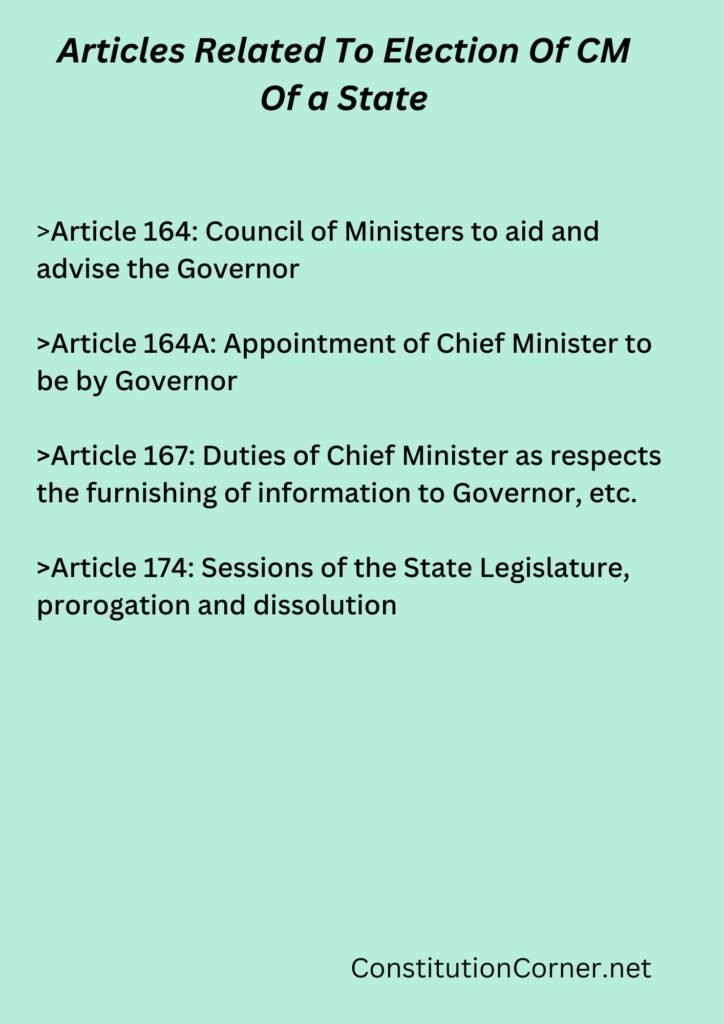In this article we delve into the process of the election of Chief Minister (CM) of a state, basically we are here to discus about the election process of CM of a state.

The election of the Chief Minister (CM) of a state in India is primarily governed by the following articles of the Indian Constitution:
>Article 164: Council of Ministers to aid and advise the Governor
- (1) The Chief Minister shall be appointed by the Governor and the other Ministers shall be appointed by the Governor on the advice of the Chief Minister, and the Ministers shall hold office during the pleasure of the Governor.
- (2) The Council of Ministers shall be collectively responsible to the Legislative Assembly of the State.
>Article 164A: Appointment of Chief Minister to be by Governor
- (1) The Governor shall appoint as Chief Minister of the State a member of the Legislative Assembly who is a leader of the Legislative Party in the Legislative Assembly of the State.
>Article 167: Duties of Chief Minister as respects the furnishing of information to Governor, etc.
- It shall be the duty of the Chief Minister of each State to communicate to the Governor of the State all decisions of the Council of Ministers relating to the administration of the affairs of the State and proposals for legislation and to furnish such information relating to the administration as the Governor may call for.
>Article 174: Sessions of the State Legislature, prorogation and dissolution
- (1) The Governor shall from time to time summon the House or each House of the Legislature of the State to meet at such time and place as he thinks fit, but six months shall not intervene between its last sitting in one session and the date appointed for its first sitting in the next session.
- (2) The Governor may from time to time-
(a) Prorogue the Houses or either House;
(b) dissolve the Legislative Assembly.
Related: All Articles Of Indian Constitution Related To Election